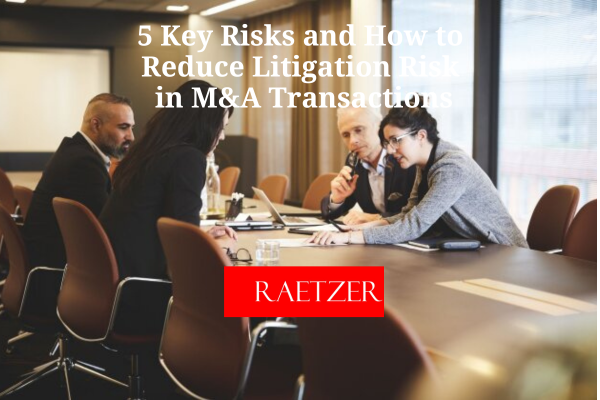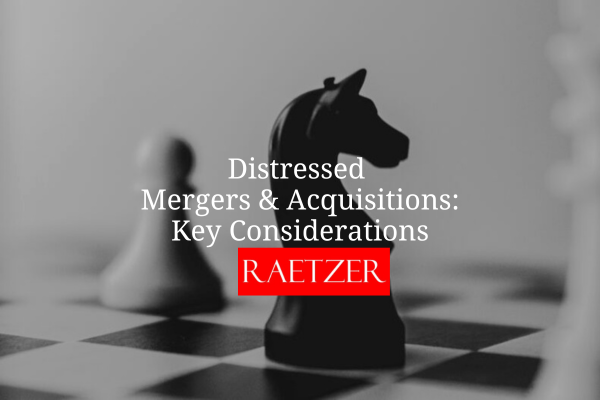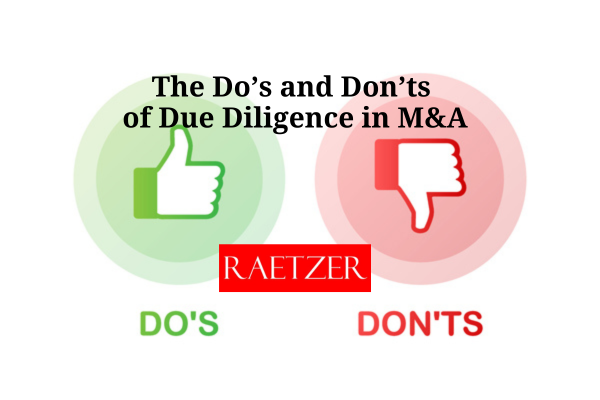Mergers and acquisitions (“M&A”) offer exciting growth opportunities but also introduce the potential for disputes at nearly every stage of the process. From initial negotiations to years after a deal closes, both buyers and sellers must navigate complex issues to minimize legal risks. Here are five common sources of disputes in M&A transactions and strategies to mitigate them:
1. Protect Confidentiality with a Robust Nondisclosure Agreement (“NDA”)
The exchange of sensitive information is critical in M&A transactions. Buyers need access to financial reports, trade secrets, and other proprietary details to evaluate the deal. NDAs, often the first binding agreement between parties, safeguard this information, ensuring it isn’t misused or disclosed.
Key considerations for NDAs include:
- Defining how proprietary information should be handled after negotiations end (e.g., returned or destroyed).
- Establishing time limits for confidentiality obligations.
- Determining whether to include restrictions on soliciting employees, clients, or vendors.
Customized agreements tailored to the specific transaction can prevent future disputes and protect valuable intellectual assets. Experienced legal counsel can craft NDAs that balance attracting buyers with protecting confidential information.
2. Avoid Post-Closing Disputes with Complete and Accurate Disclosure Schedules
Disclosure schedules form the backbone of M&A transactions by supporting the seller’s representations and warranties. These schedules document critical details such as intellectual property, contracts, and liabilities.
Poorly prepared disclosure schedules can result in litigation or financial exposure for sellers. Buyers must ensure these schedules are thorough and account for potential liabilities, such as:
- Pending lawsuits
- Regulatory investigations or violations
- Tax obligations
- IT security breaches
Using up-to-date, accurate information minimizes risks and supports smoother post-closing transitions.
3. Clearly Define Earn-Out Provisions
Earn-out provisions help bridge valuation gaps between buyers and sellers, tying part of the purchase price to the business’s future performance. While they can facilitate transactions, poorly defined provisions often lead to disputes.
Best practices for drafting earn-out provisions include:
- Agreeing on accounting methodologies and performance metrics, such as EBITDA.
- Clearly outlining payment schedules and access to financial statements.
- Defining the buyer’s discretion in post-closing business operations to prevent claims of intentional frustration.
Additionally, earn-out provisions should include dispute resolution mechanisms to address issues efficiently if they arise.
4. Uphold Fiduciary Duties in Decision-Making
Directors and officers involved in M&A transactions must fulfill their fiduciary duties by acting in the corporation’s best interests. This includes reviewing all material information relevant to the transaction and its potential impact on the company’s solvency.
Failure to do so can result in breach of fiduciary duty claims. Potential conflicts of interest, such as familial or financial ties to the buyer, must also be carefully managed to ensure impartiality.
5. Navigate Freeze-Out Mergers with Care
Freeze-out mergers, where minority shareholders are forced to sell their shares for cash, are closely scrutinized by courts. Majority shareholders must demonstrate that the merger benefits the corporation and treat minority shareholders fairly by:
- Offering fair market value for their equity interests.
- Ensuring the transaction advances legitimate corporate interests.
While shareholder oppression claims may not be available in certain jurisdictions, minority shareholders can still pursue claims for breach of fiduciary duty, fraud, or breach of contract if unfairly treated.
Navigating M&A transactions requires meticulous attention to detail, from drafting agreements to ensuring regulatory compliance. By addressing potential areas of dispute proactively, buyers and sellers can reduce risks, foster trust and achieve sustainable outcomes. Whether preparing for due diligence or finalizing disclosure schedules, expert legal counsel and business consultation is essential to manage risk and secure a durable deal.




